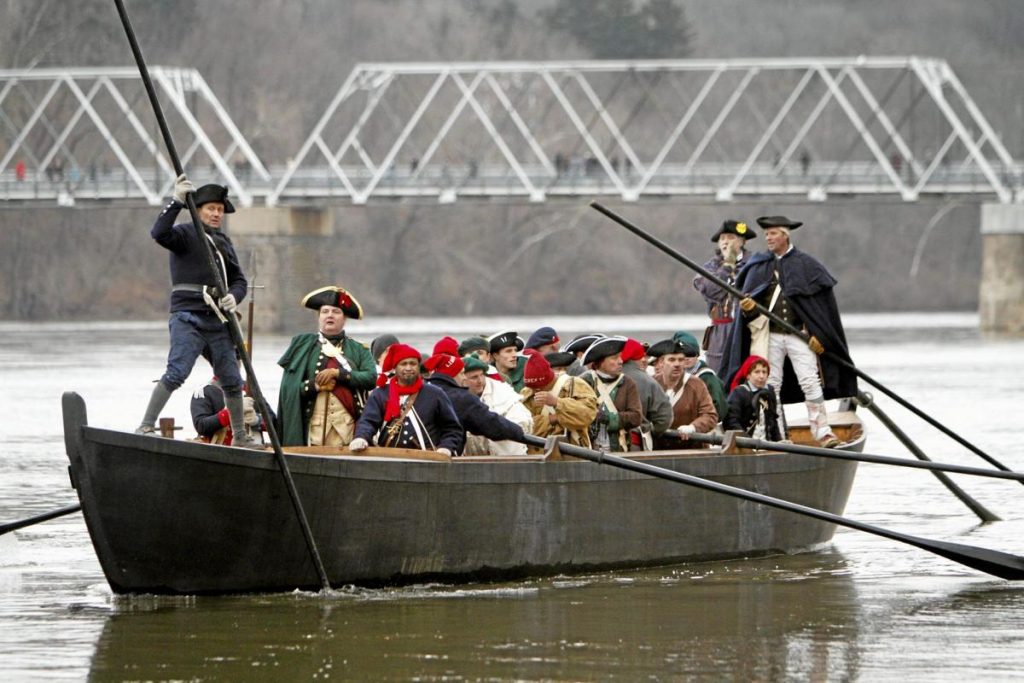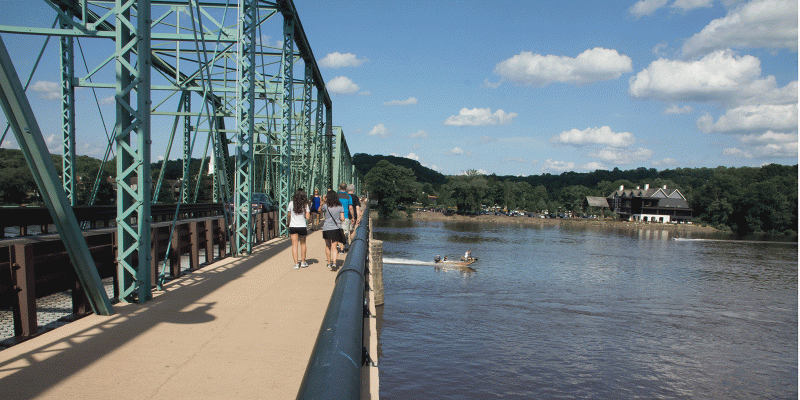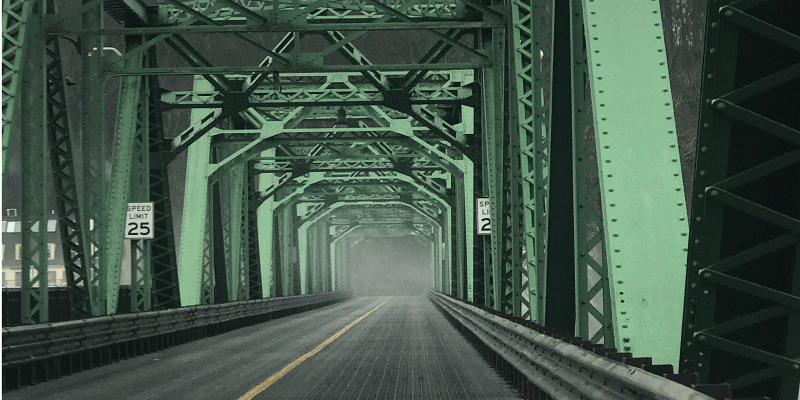Every year, hundreds make the pilgrimage to Washington Crossing Historic Park on Christmas afternoon to watch the reenactment of George Washington and his Continental Army’s Delaware River-crossing in 1776.
It was a critical turning point for the colonists, who were hanging on by a thread. If not for Washington’s super-stealthy strategy, that voice in your head that’s reading this would likely have an English accent.
But, how much do you really know about the events that surrounded that night? No judgement here. We could all probably use a quick refresher course.

Against the rules
In the weeks beforehand, Washington and his troops had been trying to keep the British and their German mercenaries out of New Jersey and away from Philadelphia. But the Continental soldiers couldn’t hold their positions. They were outnumbered, poorly equipped, starving, exhausted, and half-frozen. (You know what Jersey’s like in November and December.)
When they reached Trenton, Washington changed his strategy. He sent men up and down the banks of the Delaware, a 40-mile stretch in all, with instructions to burn or seize every rowboat they came across. That was to ensure the British and Hessians couldn’t cross.
Then, on December 2, Washington and his army crossed the Delaware from Trenton to Morrisville. He spread his men out again along the banks of the river, this time to stand watch.
When the British and Hessians realized what was going on, they called a timeout. Traditionally, European wars weren’t fought in the winter. (Nor were there ever any surprise attacks.) So, the large—and, to that point, utterly dominant—army was split up into smaller units and divided between Mount Holly, NJ, Trenton, Princeton, and New York.
When Washington caught wind that there were only 1,400 Hessian soldiers holding down Trenton, his mind started to race. He hadn’t won anything, but he saw what he believed was his chance.
It took Washington and his army 11 hours to cross the river on Christmas night in 1776, way longer than he had planned. The river was choked with ice, and a winter storm started rolling in at the onset that made every movement a grind. They made it to Trenton by 8 AM, much later than Washington wanted, but they still managed to catch the Hessians off-guard.
An hour-and-a-half later, his first battle won, Washington and his troops were headed back the way they came with 900 prisoners in tow. Most of them were jailed in nearby Newtown.
This year’s reenactment
If you’re planning to catch this year’s crossing reenactment, it starts at noon. And, yes, it’s free, but don’t use that as an excuse to emerge from the small mountains of shredded wrapping paper at your own pace. Parking at the park is a precious commodity, and congestion on routes 29 and 32 only worsens the closer it gets to the reenactment.



